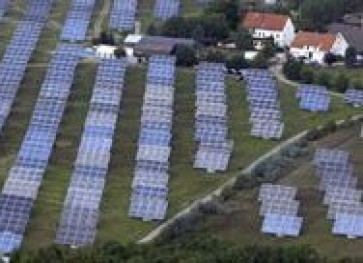BUREAUCRACY HAMPERS SOLAR BUSINESS IN BULGARIA
Subsidies for green projects in rural regions remain unabsorbed
The solar business in Bulgaria is practically halted by bureaucracy and statutory loopholes. Bulgaria has good potential for solar radiation, which ranges from 1,100 to 1,500 kWh a year in the different regions. Foreign companies and banks, though, are unwilling to take the risk of investing without knowing how the main obstacles to this business will be cleared. That is the reason why the solar projects that have obtained the full set of documents and permits are looking for strategic partners to provide financing.
Problems
The lack of a fixed feed-in tariff for green energy is the main impediment to the development of the industry. Currently the price of photovoltaic electricity is BGN 823 per mWh for facilities of up to 5 kW and BGN 755 per mWh for bigger plants. However, the tariff can be changed every year by the end of March by decision of the State Energy and Water Regulatory Commission (SEWRC).
The obscurity about the obligations of the investor and the network operator concerning the connecting of a photovoltaic plant to the national grid is also a problem. The numerous permits, the sluggish procedures and the endless bureaucratic requirements, especially for small installations, are in practice an insurmountable impediment to the development of the solar business.
Subsidy failure
Measures 311, 312 and 321 of the programme for development of the rural regions in 2007-13 provide for production and sale of green energy for the purpose of improving the situation in those regions. The procedure for submitting documents started between September 2008 and January 2009 for the different measures. However, not a single contract has been signed yet with a company willing to build an installation for production of clean energy. The applications are handled by the State Agriculture Fund (SAF).
Statutes
The SEWRC and SAF are currently developing methods for assessment of projects for renewable energy sources (RES). The document will clear the huge price differences for the various types of projects and will be ready within a month.
The drafting of amendments to the law on renewable and alternative energy sources and biofuels is also under way. The document will be submitted to the council of ministers by the end of April, the ministry of economy and energy said.
By 2020 RES projects have to account for 16% of the total energy consumption in Bulgaria, according to the European requirements. What the share of solar energy in this quota will be is a matter of state policy. At any rate, if Bulgaria fails to achieve the target, it will have to import green energy. And pay for transmission, too.
Stocktaking
Total capacity of solar plants only 7mW
The total installed capacity of photovoltaic plants in Bulgaria does not exceed 7 mW.
Bigger projects include Paunovo (1 mW), Botevo (2 mW), Yankovo (2.4 mWh, yet to reach full capacity), and Blatets (836.7 kW).
Those projects were carried out despite the unfavourable administrative framework, Bulgarian Photovoltaic Association chairman Nikola Gazdov said.
That is also the reason why smaller projects are less than 20 in number.









